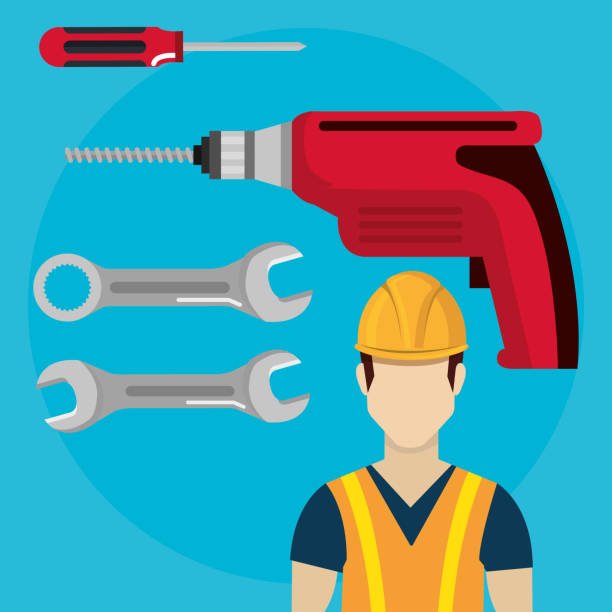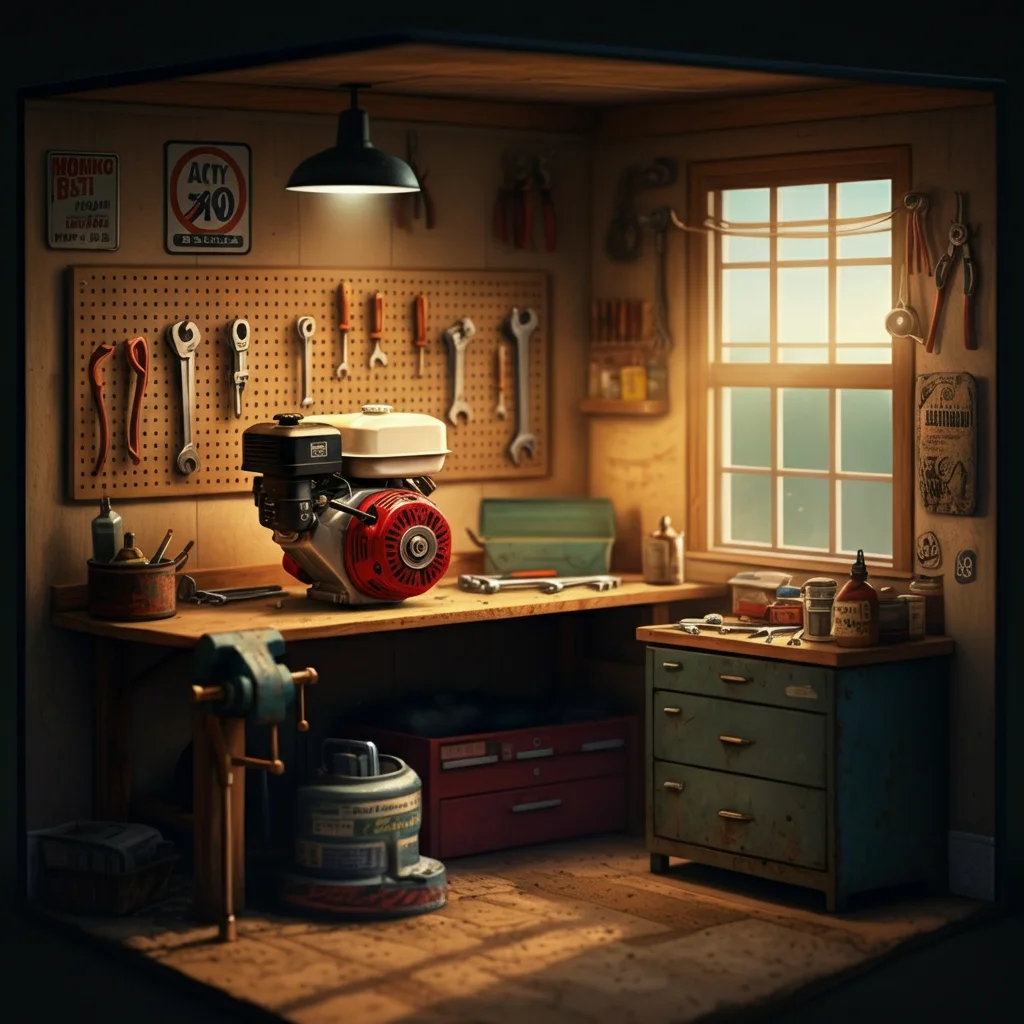Are you fascinated by the inner workings of engines and looking for a way to turn that passion into profit? Starting a small engine repair business from home might be your perfect opportunity. With Americans owning over 90 million pieces of outdoor power equipment—from lawnmowers to chainsaws—the demand for skilled repair technicians continues to grow.
Unlike many business ventures that require substantial capital investment and commercial space, a home based business focused on small engine repair offers an accessible entry point into entrepreneurship. You can leverage your existing mechanical skills while maintaining low overhead costs and flexible working hours.
The beauty of this business model lies in its sustainability focus. Rather than encouraging customers to replace equipment, you’re extending the life of valuable machinery while building a profitable enterprise. This approach resonates with environmentally conscious consumers and creates lasting customer relationships.
Whether you’re a seasoned mechanic looking to break away from traditional employment or someone with a natural aptitude for fixing things, this comprehensive guide will walk you through everything needed how to start a small engine repair business from home successfully.
Benefits of Starting Your Repair Business From Home

Lower Overhead Costs
Operating from home eliminates the largest expense most businesses face: commercial rent. Without monthly lease payments, utility deposits, and commercial insurance premiums, you can allocate more resources toward quality tools and marketing efforts. This financial advantage allows you to offer competitive pricing while maintaining healthy profit margins.
Flexible Schedule and Work-Life Balance
Home-based operations grant complete control over your schedule. You can accommodate customer appointments around family commitments, pursue other interests, or simply avoid the stress of rush-hour commutes. This flexibility becomes particularly valuable during seasonal peaks when demand for lawn equipment repairs surges.
Personal Satisfaction and Community Impact
Building relationships with neighbors and local customers creates a sense of community involvement that corporate employment rarely provides. When you successfully repair a customer’s cherished garden tractor or restore a vintage chainsaw, the satisfaction extends beyond financial gain to genuine personal fulfillment.
Essential Skills and Knowledge for Success
Core Technical Competencies
Successful small engine repair requires understanding two-stroke and four-stroke engine operations, fuel system diagnostics, and electrical troubleshooting. You’ll need familiarity with carburetor rebuilding, ignition system repairs, and basic welding techniques for equipment frames and attachments.
Diagnostic skills separate amateur tinkerers from professional technicians. Learning to systematically identify problems through visual inspection, sound analysis, and performance testing will dramatically improve your efficiency and customer satisfaction rates.
Continuous Learning Requirements
Engine technology evolves constantly, with manufacturers introducing new fuel systems, emission controls, and electronic components. Subscribing to industry publications, attending manufacturer training sessions, and participating in online forums keeps your skills current and competitive.
Consider pursuing certifications from major manufacturers like Briggs & Stratton, Honda, or Kohler. These credentials build customer confidence and often provide access to technical support resources and wholesale parts pricing.
Required Tools and Equipment

Basic Tool Investment
Starting your small engine repair business requires approximately $2,000-$5,000 in initial tool investment. Essential items include a comprehensive socket and wrench set, specialty small engine tools, compression tester, spark tester, and carburetor cleaning equipment.
Quality matters significantly in professional repair work. Investing in durable tools from manufacturers like Snap-on, MAC, or Craftsman Professional reduces long-term replacement costs and improves work efficiency. Harbor Freight tools can supplement your collection for less frequently used items.
Advanced Equipment Considerations
As your business grows, consider investing in an ultrasonic cleaner for carburetor parts, a lathe for custom machining work, and diagnostic computers for newer electronic-controlled engines. A parts washer, air compressor system, and hydraulic press expand your service capabilities significantly.
Mobile repair services require different equipment considerations. A well-organized service van or trailer with built-in tool storage, parts inventory, and portable workbench creates professional customer impressions while maintaining efficiency.
Setting Up Your Home Workspace
Choosing the Right Space
Garages, outbuildings, or basement workshops can accommodate small engine repair operations effectively. Your workspace needs adequate ceiling height for engine hoists, sufficient electrical service for power tools and lighting, and proper ventilation for engine testing and solvent use.
Consider noise implications for neighbors, especially if you plan evening or weekend operations. Installing sound-dampening materials or scheduling noisy activities during appropriate hours maintains good community relationships.
Organization and Safety Measures
Efficient workspace organization directly impacts profitability. Designated areas for incoming repairs, work in progress, completed jobs, and parts storage prevent confusion and reduce time waste. Wall-mounted tool organization systems keep frequently used items accessible while maintaining clean work surfaces.
Safety equipment including eye protection, hearing protection, first aid supplies, and fire extinguishers protects both you and your customers. Proper chemical storage containers and spill cleanup materials ensure environmental compliance and workplace safety.
Professional Appearance Standards
Even home-based businesses benefit from professional presentation. Clean, well-lit workspaces with organized tool displays and customer seating areas create positive impressions. Consider installing a separate business entrance if possible to maintain family privacy while accommodating customer visits.
Legal Considerations and Compliance
Business Registration and Licensing
Most municipalities require business licenses for home-based operations, even part-time ventures. Contact your local city clerk’s office to understand specific requirements, which typically include basic business registration, zoning compliance verification, and modest annual fees.
Some areas restrict commercial activities in residential zones or limit customer traffic volumes. Understanding these regulations before launching prevents costly compliance issues and neighbor complaints that could jeopardize your business operation.
Insurance Requirements
General liability insurance protects against customer property damage or personal injury claims. Professional liability coverage addresses potential damage from repair work errors. Property insurance should cover your tools, equipment, and customer property while in your possession.
Consider umbrella liability policies for additional protection, especially as your business grows and handles more expensive equipment. Many insurance companies offer business owner policies combining multiple coverage types at reduced rates.
Environmental Regulations
Small engine repair generates waste oil, fuel, solvents, and metal debris requiring proper disposal. Contact local environmental agencies for approved disposal methods and recycling programs. Many auto parts stores accept waste oil and batteries for recycling at no charge.
Document all waste disposal activities to demonstrate compliance with environmental regulations. Proper chemical storage containers, spill prevention measures, and cleanup procedures protect both your business and the environment.
Marketing and Customer Acquisition
Building Your Brand Identity
Creating a memorable business name, logo, and consistent messaging establishes professional credibility. Consider names reflecting your specialization, geographic area, or personal approach to customer service. Professional business cards, vehicle signage, and uniforms reinforce your brand image consistently.
Online presence through a simple website and social media profiles expands your marketing reach significantly. Include service descriptions, contact information, customer testimonials, and before-and-after repair photos to showcase your expertise effectively.
Local Marketing Strategies
Neighborhood marketing proves most effective for small engine repair businesses. Distribute flyers during spring preparation season, establish relationships with local equipment dealers, and offer services to landscaping companies requiring quick turnaround repairs.
Word-of-mouth referrals drive substantial business growth when you consistently deliver quality service. Implement referral reward programs, request online reviews from satisfied customers, and maintain excellent communication throughout the repair process.
Digital Marketing Approaches
Search engine optimization helps local customers find your services online. Create content addressing common repair questions, seasonal maintenance tips, and equipment buying guides. Local business directories like Google My Business, Yelp, and Nextdoor connect you with nearby customers actively seeking repair services.
Social media platforms offer excellent opportunities to showcase completed repairs, share maintenance tips, and build customer relationships. Regular posting schedules and customer interaction demonstrate active business engagement and expertise.
Pricing Your Services Competitively
Market Research and Analysis
Research local competitors’ pricing structures through mystery shopping, online research, and customer feedback. Understanding market rates prevents underpricing your services while ensuring competitive positioning against established businesses.
Consider both hourly rates and flat-rate pricing models. Hourly billing works well for diagnostic services and complex repairs, while flat rates appeal to customers seeking predictable costs for routine maintenance services.
Cost Calculation Methods
Accurate pricing requires understanding all business costs including tools, parts, insurance, marketing, and your desired profit margin. Track time spent on different repair types to establish realistic labor estimates for various services.
Factor in overhead costs like workspace utilities, tool replacement, continuing education, and business licensing fees. Many successful repair businesses target 50-70% gross profit margins to ensure sustainable operations and growth funding.
Value-Based Pricing Strategies
Emphasize the value you provide beyond basic repair services. Quick turnaround times, pickup and delivery options, warranty coverage, and exceptional customer service justify premium pricing compared to competitors offering only basic repair services.
Seasonal pricing adjustments maximize profitability during peak demand periods while maintaining customer relationships during slower months. Consider offering winter storage services or off-season maintenance packages to smooth revenue fluctuations.
Managing Business Finances
Accounting and Record Keeping
Accurate financial records support tax compliance, business decision-making, and growth planning. Simple accounting software like QuickBooks or Wave manages invoicing, expense tracking, and basic financial reporting efficiently for small businesses.
Much like mastering small business bookkeeping tips, maintaining detailed records of parts purchases, tool investments, and customer payments enables accurate profitability analysis by service type and customer segment.
Separate business and personal finances through dedicated business checking accounts and credit cards. This separation simplifies tax preparation and provides clear business performance visibility throughout the year.
Cash Flow Management
Small engine repair businesses often experience seasonal cash flow variations. Spring and summer typically generate peak revenue, while winter months may require alternative income sources or careful cash reserve management.
Implement payment terms encouraging prompt customer payment while accommodating reasonable payment preferences. Accepting credit cards increases convenience for customers while improving your cash flow compared to check or cash-only policies.
Consider offering financing options for expensive repairs through partnerships with companies like Synchrony or PayPal Credit. These services increase customer purchasing power while guaranteeing immediate payment to your business.
Tax Optimization Strategies
Home-based businesses qualify for various tax deductions including workspace expenses, tool purchases, vehicle expenses, and continuing education costs. Consult with tax professionals familiar with small business regulations to maximize legitimate deductions.
Keep detailed mileage logs for customer visits, parts purchasing trips, and business-related travel. The IRS allows either actual expense deduction or standard mileage rate deduction, whichever provides greater tax benefits.
Track all business-related purchases with receipts and credit card statements. Digital receipt storage apps simplify record keeping while ensuring documentation availability during tax preparation or potential audits.
Scaling Your Business for Growth
Service Expansion Opportunities
Successful small engine repair businesses often expand into related services like equipment rental, new equipment sales, or seasonal services such as snow removal equipment preparation. These additions leverage existing customer relationships while diversifying revenue streams.
Consider specializing in niche markets such as vintage engine restoration, racing engine modifications, or commercial-grade equipment servicing. Specialized services often command premium pricing while developing dedicated customer bases with less price sensitivity.
Mobile repair services appeal to busy customers and commercial accounts requiring on-site service. Investing in a service vehicle and portable equipment expands your market reach while differentiating your business from shop-only competitors.
Building Customer Loyalty
Exceptional customer service creates lasting business relationships extending far beyond individual repair transactions. Implement customer communication systems providing repair status updates, completion notifications, and follow-up satisfaction surveys.
Develop maintenance service programs offering annual tune-ups, winter storage preparation, and spring startup services. These recurring revenue relationships provide predictable income while ensuring regular customer contact opportunities.
Customer education through maintenance tips, proper operation techniques, and seasonal preparation advice positions you as a trusted advisor rather than just a repair service. This relationship depth encourages customer loyalty and referral generation.
Strategic Growth Planning
Document successful business processes and systems to facilitate potential expansion or employee training. Standardized procedures ensure consistent service quality while reducing training time for future team members.
Evaluate growth opportunities carefully, considering market demand, competition levels, and required capital investment. Sometimes maintaining a smaller, highly profitable operation provides better lifestyle benefits than aggressive expansion efforts.
Consider strategic partnerships with complementary businesses such as landscaping companies, equipment dealers, or property management firms. These relationships can provide steady work referrals while expanding your business network effectively.
FAQ About how to start a small engine repair business from home
What qualifications do I need to start a small engine repair business?
While formal qualifications aren’t legally required, mechanical aptitude and hands-on experience with small engines are essential. Many successful business owners learn through personal projects, online resources, and manufacturer training programs. Consider pursuing certifications from major engine manufacturers to build credibility with customers.
How much money do I need to invest upfront?
Initial investment typically ranges from $3,000 to $8,000, covering basic tools, initial parts inventory, business licensing, and insurance. This amount can vary significantly based on your existing tool collection and whether you plan to offer mobile services requiring vehicle modifications.
What tools and equipment are essential?
Essential tools include comprehensive socket and wrench sets, specialty small engine tools, compression tester, spark tester, carburetor cleaning supplies, and basic welding equipment. Quality tools improve efficiency and reduce long-term replacement costs significantly.
How do I attract my first customers?
Start with friends, family, and neighbors who know your mechanical abilities. Distribute flyers during spring equipment preparation season, establish relationships with local equipment dealers, and create online profiles on local business directories. Word-of-mouth referrals typically drive most business growth.
How do I price my services competitively?
Research local competitors’ pricing through mystery shopping and online research. Calculate your true costs including overhead, tools, and desired profit margins. Many successful shops target 50-70% gross profit margins while remaining competitive with local pricing.
Do I need a separate business bank account?
Yes, separating business and personal finances simplifies tax preparation, provides clear performance visibility, and demonstrates professionalism to customers and vendors. Most banks offer small business checking accounts with reasonable fee structures.
What type of insurance do I need?
General liability insurance protects against customer property damage or injury claims. Professional liability coverage addresses potential repair work errors. Property insurance should cover your tools, equipment, and customer property in your possession.
How do I handle waste oil and hazardous materials?
Contact local environmental agencies for approved disposal methods and recycling programs. Many auto parts stores accept waste oil and batteries for recycling. Document all disposal activities to demonstrate environmental regulation compliance.
Can I run this business part-time?
Absolutely. Many successful small engine repair businesses start as part-time ventures while maintaining other employment. Flexible scheduling allows you to accommodate customers during evenings and weekends while building your reputation and customer base gradually.
How do I scale my business over time?
Focus on exceptional customer service to generate referrals and repeat business. Consider expanding services, developing maintenance programs, or adding mobile repair capabilities. Document successful processes and systems to facilitate potential employee training or business expansion opportunities.
Start Your Engine Repair Journey Today
Starting a small engine repair business from home offers an exceptional opportunity to combine mechanical passion with entrepreneurial success. The growing demand for skilled technicians, combined with low startup costs and flexible scheduling, creates an attractive business model for motivated individuals.
Success in this industry requires dedication to quality workmanship, continuous skill development, and exceptional customer service. By focusing on these fundamentals while implementing sound business practices, you can build a thriving enterprise that provides both financial rewards and personal satisfaction.
The repair industry contributes significantly to environmental sustainability by extending equipment life rather than encouraging replacement. This mission-driven aspect adds meaning to your work while appealing to environmentally conscious customers who appreciate your contribution to reducing waste.
Take action today by assessing your current skills, researching local market conditions, and developing a business plan tailored to your specific situation. Your journey toward small engine repair business ownership begins with that first step, and the potential rewards make the effort worthwhile.

